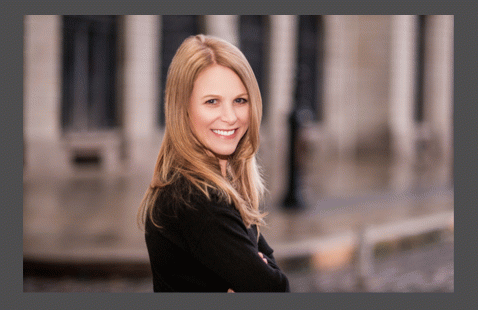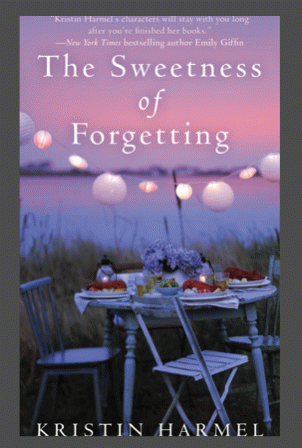My guest today is Kristin Harmel, journalist, international best-selling novelist and author of numerous books which have been translated into many languages.
Joan Brunwasser: Welcome to OpEdNews, Kristin. Although your books have been in print for over a decade, I just discovered them this summer. What launched you as such a successful storyteller in the first place?
Kristin Harmel: Thanks for reaching out, Joan. I'm glad you picked up The Sweetness of Forgetting. I've been writing professionally for years--beginning in 1995, when I was 16 and began freelancing for a local sports magazine in Tampa Bay. I had always wanted to write novels, but journalism seemed like a more logical and tangible career to pursue at first, so I spent several years writing for local--and then national--magazines, including Men's Health, American Baby, Woman's Day, and PEOPLE. I was still writing for PEOPLE when I wrote my first novel in 2003; it was published in February 2006 by Warner Books, which later became Hachette Book Group. After four chick lit novels (in the vein of Bridget Jones's Diary or The Devil Wears Prada) and two young adult novels, I refocused my career a bit and began writing more upmarket women's fiction. The result was The Sweetness of Forgetting, published in 2012 by Gallery Books, a division of Simon & Schuster. I've been a proud Gallery author ever since and have had an additional four novels published by them, including The Winemaker's Wife, which came out in August 2019.
JB: The Sweetness of Forgetting was the third of your books that I read, after The Life Intended and Italian for Beginners. One of the many fascinating aspects of the book was the setting: a family bakery, run by a single mom. Its authenticity was buttressed by the mouth-watering descriptions and actual recipes for some scrumptious desserts. Where did your expertise in this subject come from? How did you decide to use this setting? And did your research include a lot of testing and tasting?
KH: Thanks for reading a few of my books and thanks for the kind words about the bakery in The Sweetness of Forgetting. I am a lifelong baker who loves to experiment in the kitchen, so most of the recipes in the book were original, inspired by the places and people in the book. Part of my research involved eating my way through the Jewish bakeries of Paris as well as eating many of the pastries served up by the Grand Mosque of Paris, which plays a vital role in the book, too. It's a wonder I didn't gain a hundred pounds while writing the book! I liked the idea that Hope, the main character, had spent her whole life surrounded by secrets she didn't know existed, all of them baked into her grandmother's recipes and that was the inspiration behind setting the novel partially in a bakery.
JB: The plot line, revealed late in the book, takes us back to the Second World War and the Holocaust. I wasn't expecting that. But the wrinkle involving European Muslims during the war particularly caught me off-guard. I've read many Holocaust books and I had never heard of this chapter in history and neither had anyone I asked. Please tell us how you came across it and how you decided to weave it into your story.
KH: The story of the Muslims of the Grand Mosque of Paris saving around a thousand Jews during WWII is something I came across as a brief mention while reading about WWII in France. The second I read it, I knew it had to play a role in the novel, because it feels so relevant today. I had lived in Paris in my early 20s and had never heard this. It was difficult to find information on, because it was all very secretive, and very few people knew about it at the time. But there's a wonderful children's book about it, and just enough information out there that I was able to realistically craft that portion of the story. In Albania, a similar story unfolded, and I was able to include that, too. I think it's so important to remember, especially in these times of division, that in our darkest hours, there are people who step up and do the right thing regardless of religion, race or politics. It's inspiring!
JB: Agreed! That's why I wanted to discuss this with you, although the book is hardly new. Have you done anything similar - inserting a mostly unknown historical nugget - into any of your other books?
KH: Actually, since sharing a surprising piece of inspiring information with readers was one of my favorite parts of The Sweetness of Forgetting, I've endeavored to do something similar with every book since. In 2014's The Life Intended, I explored the complex worlds of foster care and hearing loss. In 2016's When We Meet Again, I focused on the 400,000 German POWs who spent a portion of WWII right here in the United States. In 2018, I tackled Allied escape lines in Paris and their connection to American civilians in The Room on Rue Amelie. And in this year's The Winemaker's Wife, I explored the French Resistance in Champagne. I want readers to walk away from my books moved by the stories but also armed with new and surprising tidbits that cast a new light on the history they thought they knew.
JB: Since we began our interview, I began reading When We Meet Again and I was astounded to learn that not only were many German POWs interned and working in the US but that there were 700 internment camps, all over the country. I'm thrilled that you regularly include opportunities for your readers to learn while reading a good tale. Painless but effective!
Let's return to The Sweetness of Forgetting for a bit. Numerous characters are undergoing identity crises: Mamie, dealing (or not) with her secret past, which has affected everyone in her family, including her daughter, her husband, and Hope, her granddaughter. And poor Hope: In a relatively short time, her mother dies, her grandmother develops Alzheimer's, her marriage breaks up, the bakery, which she has taken over when there's no one else to step up, is threatened with going under, and she's dealing with one very angry, pre-teen, adept at acting out.
And it's not like she's secure and confident because she came from an intact and loving family, in the first place. Life has shown her that everyone leaves or disappoints, to depend on no one. And so she sees herself as essentially alone. Full of self-doubt, Hope's barely holding on. Then, she's got to tackle this new, life-changing wrinkle from her grandmother's past. Somehow, you were able to find that fine line between drama and melodrama. Did you purposely push Hope almost past the breaking point? Were you ever concerned that it might just be too much for her?
KH: Great question! To be honest, I never really thought of it that way. I think that there are times in everyone's life where we are pushed nearly to the breaking point--and it is these times that give us the greatest opportunities for growth. For example, in my own life, in early 2018, I had a stressful situation going on that was eating away at me. In the midst of all that, the day before my husband's 40th birthday and two days before my son's second birthday (a weekend in which we had fifty people scheduled to come to our house for a joint birthday party), I slipped on a wet tile floor and shattered my kneecap, which required emergency surgery, a three-day hospitalization, six weeks of immobilization, and a very long physical therapy road to rehabilitation. (It's been more than a year and a half, and my knee still isn't back to normal.) I had to cancel/reschedule an entire elaborate birthday trip I had planned for my husband and eight of our friends. Oh, and did I mention this was all just six weeks before my 2018 novel, The Room on Rue Amelie, came out? It felt like everything was happening at once--but I had a choice. I could let the situation get the best of me, or I could push through it and come out a better, stronger person on the other side. I chose choice B.
I think that in life, we're presented with choices like this all the time, and the decisions we make are the ones that define us and make us who we are. Of course my situation pales in comparison to Hope's in The Sweetness of Forgetting. Her world really is crashing down around her. But to me, tremendous character growth is what makes fiction so interesting. I mean, I could have chosen to write about Hope five years earlier, when her grandmother was healthy, her marriage was intact, and everything was a-okay. But that wouldn't have given her the same opportunity for growth, and it therefore wouldn't have been as compelling to a reader. I love taking my characters to the edge of their darkest hours--and watching what they choose to do there. It is in the darkness that we have the opportunity to discover the light within us.
(Note: You can view every article as one long page if you sign up as an Advocate Member, or higher).







